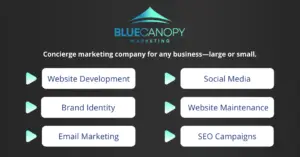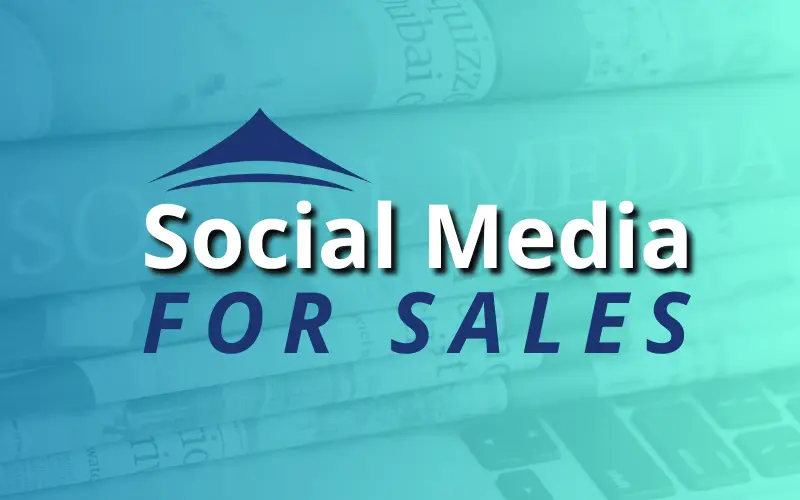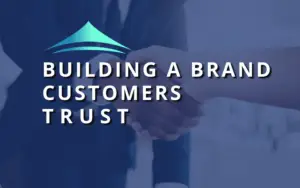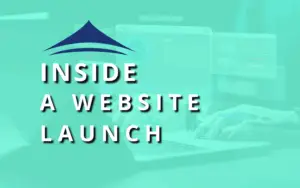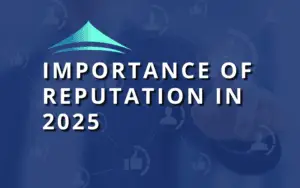Social media is a valuable and dynamic marketing tool that almost every business should be taking full advantage of. Whether you are
- building a community around your brand
- creating a personal line of communication with your customers
- boosting awareness of your products/services
- educating your audience as to why you are the solution to their problems
Harnessing social media to your business’s benefit is the wave of digital marketing that is undoubtedly here to stay.
As we mentioned above, social media has many uses, but at the center of our hopes and desires for our social media outcomes lies the biggest, and arguably most important outcome of them all: conversion.
Social media might be about getting social, but it can also be about promoting, and therefore increasing, your sales–if you strategize accordingly.
How do you use social media to increase conversions? Keep reading to find out how you can assemble a profitable social media strategy custom to your business.
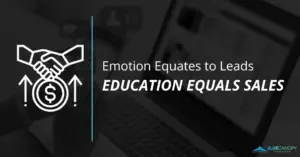
Education Over Emotion
When marketing your business on social media or beyond, there are 4 central pillars of content strategy that you should be incorporating. Those pillars are
- Education
- Emotion
- Promotion
- and Personable Content
Ideally, your content mix should rotate around each of these pillars. In addition, marrying some of these base content pillars in unison from time to time is a natural step you may find yourself making as you progress deeper into your marketing.
The Great Debate: Education or Emotion?
Most marketers you ask hold a firm stance as to whether educational marketing or emotional marketing is the most impactful way to generate sales from audiences.
While positioning your marketing to pull at the emotions of your audience has the potential to be profitable and effective, recent studies and extensive data have proven that an education-based approach may be the more advantageous route when trying to acquire more conversions.
Not to count out emotion-based marketing altogether, as this form of marketing is excellent for stimulating engagement with your following and building a loyal community. On the flip side of this argument, there are a generous amount of studies and professional opinions that prove that education is the ultimate marketing method if your goal is to drive sales.
What is Educational Marketing?
Before diving into why educational content is superior for boosting sales, let’s familiarize ourselves with what educational marketing is at its core.
Per LearnWorlds, educational marketing is a way of approaching your content marketing strategy, more specifically it is through the creation of content that will help guide leads further down your sales funnel, focusing on educating about your services rather than pushing towards a sale.
Read that again and take note that educational marketing is all about PULLING your audience in, as opposed to PUSHING them away with overaggressive sales tactics. Invite customers into your world by giving them the information they need to do so. The right audience will take the information they need to buy into your brand.
Why Should you Educate your Audience?
People don’t know what they don’t know until you take the steps to inform them, meaning sharing educational content is an absolute must. Moreover, supplying informative content is an essential component of the consumer decision-making journey. Most customers need a considerable amount of information to actually take profitable action, which is why giving them the facts they need is the obvious answer to turning more conversions.
According to Spotlight Conductor, consumers are 131% more likely to buy from a brand immediately after they consume early-stage, educational content.
How Do you Start Sharing Educational Marketing Content?
There are many ways that your business can begin sharing educational-based content with your audience on social media.
Begin sharing forms of content that work favorably in educating your following, such as:
- Informative Blog Articles
- Helpful Articles or Studies from Reliable Sources
- Customer Case Studies/Data-Driven Proof
- Tutorials or How-To Videos and/or Posts
- Explanatory Videos of Products/Services Direct from Employees
- Live Video Trainings
- Sharing Industry Research, Statistics, and Popular Trends
Each of these forms of content provides consumers with helpful information they are seeking as they navigate their decision in which business they should invest their resources in. Make it your goal to provide as much information as you can to assist potential prospects in understanding why they should choose YOU over your competitors.
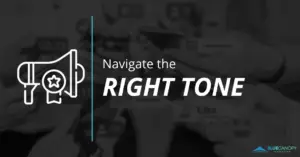
Balance What you Say and How you Say It
Now that you know that sharing education-based content is your go-to method for conversions, it’s time to hone in a bit further on the way you craft your messaging.
Educational content is first and foremost all about the “what”, meaning “what you say” is far more important than “how you say it”.
The What
When providing the “what” for your brand’s content, think of this as the information that your audience needs in order to take action and make a purchase.
“What” focused content could look like:
- the features of a product
- the value and benefits the customer receives
- quality comparison to competing brands
When focusing on the what, you want to drive home the core details of your subject so that your audience can gather the information they need to buy said product/service.
McKee Wallwork + Co reminded their audience about the importance of staying in tune with exactly “what” it is that your audience needs to hear: “…as market conditions and customer needs change, the “what” of your offering will be a continually evolving proposition.”
Staying in tune with the trends, tone, and needs of your target market is key to supporting a strong content strategy that converts.
The How
Not only must brands understand the power of bringing “the what” front and center with their social media marketing, but understanding the fundamental difference between “the how” and “the what” within your content is imperative in producing messages that are focused on generating conversion.
Coming to terms with the fact that “the how” of your message isn’t the piece of the puzzle that provides your audience with the information they need to buy is a great step in the right direction. Brands concerning themselves with How they are going to shape their message should reserve this more emotionally-driven content.
Emotionally-driven content is intended to solicit engagement from your audience through more personalized tactics. Emotional content is an essential component of the overall marketing mix and can definitely play a role in achieving sales, however, serves brands best in building awareness, recognition, loyalty, and strong customer connections.
It may take some trial, error, and perseverance to achieve the right balance in your content mix, but discovering what information guides your audience to purchase is well worth the effort.
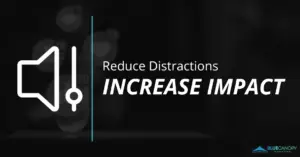
Cut Back on Loose Advertising Efforts
As crazy as it may sound, cutting back on your paid advertising just might increase the impact of your social media sales strategy.
If your goals are aligned with amplifying the reach of your brand’s content, then allocating resources to paid advertising to a broader audience is likely the correct move for you.
If your goals are to build upon and retain your current community of customers, then launching targeted campaigns with educational content, or even avoiding paid advertising altogether, may be the more advantageous route.
Paid advertising, while a powerful marketing tool when leveraged correctly, can potentially weaken the effect that your owned, education-based content is trying to bring to your customers. To generate sales on social media, you have to be committed to going all in on consistently providing quality educational content to your following. With this in mind, your brand’s commitment to producing owned media that converts is one that you certainly don’t want to cast a shadow on with generalized advertising efforts.
Furthermore, the average customer usually doesn’t want to have “salesy” content forced upon them, which is commonly the case for paid campaigns. Pulling your audience in with great content that provides them with the important details is usually enough to make the RIGHT audience take action with your business.
In fact, recent studies show that disjointed advertising efforts directed toward broad audiences have low success rates for brands trying to accomplish conversion-orientated goals:
- 70%-80% of users ignore sponsored search results. This shows the advantages of ranking organically instead of paying Google to pin your page to the top of search results. (Search Engine Land)
- In reference to increasing sales with a targeted advertising approach, POWR shared “The thing about targeting a particular audience type is that your message is more precise, catchier, and more appealing to the audience you’re trying to reach. This means that they’ll receive it better, which could lead to more sales of your goods and services.”
In short, educational marketing at its core is all about targeting a specific audience with content that is designed distinctly for what they need to hear. Cut back on the distractions and focus solely on the needs of your IDEAL audience, never underestimate the power of organic social marketing, and don’t hinder its success before it even has room to take off.
Education Equals Sales
Overall, sharing more educational content on social media can help your brand:
- increase the perceived value of your brand and products
- guides your audience further down the sales funnel to purchase
- boost awareness of the need for your services and the benefits reaped once consumed
and perhaps the most exciting outcome of all, it can lead to a higher rate of conversions!
Boost sales when YOU start sharing more of the information your audience needs to buy into your brand.
Thanks for reading!
Interested in learning more about how to better market your business? Check out HOW-TO: GET STARTED WITH VIDEO CONTENT FOR BUSINESS or 5 KEYS TO INCREASING YOUR BUSINESS’S SOCIAL SEARCHABILITY
Enjoyed this month’s company update?
Click here to sign up for newsletter to stay connected with us!
Follow us on Facebook | Instagram | TikTok | LinkedIn | Twitter | Pinterest
